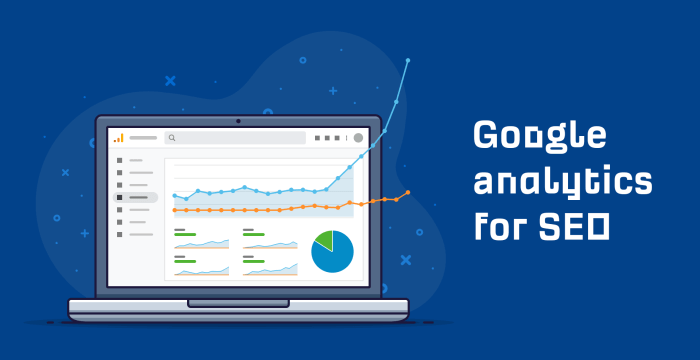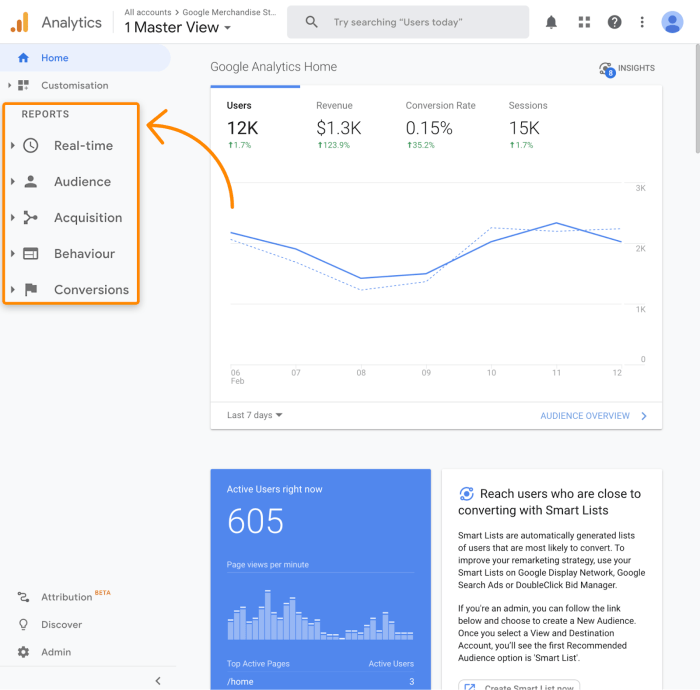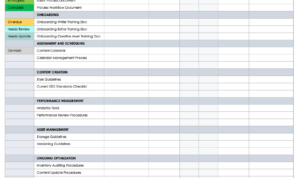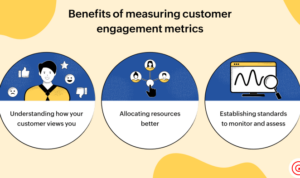Using Google Analytics for SEO – Using Google Analytics for sets the stage for this enthralling narrative, offering readers a glimpse into a story that is rich in detail with american high school hip style and brimming with originality from the outset.
Google Analytics has become a vital tool for businesses and website owners looking to enhance their online presence through strategies. By leveraging the power of data analytics, Google Analytics provides valuable insights that can drive traffic and improve search engine rankings.
Introduction to Google Analytics: Using Google Analytics For SEO

Google Analytics is a powerful tool provided by Google that allows website owners to track and analyze various metrics related to their website’s performance. It provides valuable insights into how users interact with the site, where they come from, what they do on the site, and much more.
Primary Purpose of Using Google Analytics for
Google Analytics plays a crucial role in Search Engine Optimization () by helping website owners understand how their site is performing in terms of organic search traffic. By analyzing data such as organic search s, traffic sources, user behavior, and conversion rates, website owners can make informed decisions to improve their strategies and increase visibility on search engine results pages.
Key Features of Google Analytics for , Using Google Analytics for SEO
- Traffic Sources: Google Analytics provides insights into the sources of website traffic, including organic search, direct traffic, referral traffic, and social media traffic. This helps in understanding which channels are driving the most traffic to the site.
- Analysis: Website owners can track the organic search s that users are using to find their site. This information is valuable for optimizing content and targeting relevant s.
- Behavior Flow: The Behavior Flow report in Google Analytics visualizes the path users take through the website, showing where they enter, exit, and navigate. This helps in identifying areas for improvement and optimizing user experience.
- Conversion Tracking: Google Analytics allows website owners to set up goals and track conversions, such as form submissions, purchases, or other desired actions. This helps in measuring the effectiveness of efforts in driving conversions.
- Page Performance: Website owners can analyze the performance of individual pages, including bounce rates, time on page, and exit rates. This data can be used to identify high-performing pages and areas for optimization.
Setting up Google Analytics for
To optimize a website for search engines, it is crucial to set up Google Analytics for purposes. This tool provides valuable insights into website performance, user behavior, and analysis, helping to improve strategies.
Linking Google Analytics with a website
To link Google Analytics with a website for purposes, follow these steps:
- Create a Google Analytics account if you don’t already have one.
- Sign in to your Google Analytics account and click on “Admin.”
- Under the “Account” column, click on “Create Account” and follow the instructions to set up your website property.
- Once your website property is created, you will be provided with a tracking ID.
- Copy the tracking ID and paste it into the code of every page on your website that you want to track.
Generating and installing the tracking code
To generate and install the tracking code for analysis, you need to:
- Access your Google Analytics account and navigate to the Admin section.
- Under the “Property” column, select the website property you want to track.
- Click on “Tracking Info” and then “Tracking Code” to generate the code snippet.
- Copy the tracking code and paste it into the HTML code of your website, just before the closing tag.
Analyzing Performance with Google Analytics
Google Analytics is a powerful tool that can provide valuable insights into the performance of your website’s efforts. By analyzing organic search traffic, you can understand how users are finding your site and make data-driven decisions to improve your search engine rankings.
Organic Search Traffic Analysis
- One of the key benefits of Google Analytics is the ability to track organic search traffic, which shows you the number of visitors coming to your site from search engines like Google.
- By analyzing organic search traffic, you can identify which s are driving the most traffic to your site, allowing you to optimize your content and target high-performing s.
Metrics Tracking
- Rankings: Google Analytics can track the performance of specific s, showing you where your site ranks in search engine results pages for those s.
- Organic Traffic: You can monitor the overall organic traffic to your site and identify trends over time to gauge the effectiveness of your strategies.
- Conversion Rates: By tracking conversions from organic search traffic, you can measure the success of your efforts in driving valuable actions on your site.
Significance of Key Metrics
- Bounce Rate: A high bounce rate may indicate that visitors are not finding what they are looking for on your site, prompting you to improve site content and user experience.
- Average Session Duration: Longer session durations typically indicate higher engagement, suggesting that visitors find your content valuable and relevant to their needs.
- Pages Per Session: A higher number of pages per session can signify that users are exploring multiple pages on your site, indicating a positive user experience and effective optimization.
Utilizing Google Analytics Reports for Optimization

When it comes to optimizing your strategies, Google Analytics reports can be a game-changer. By understanding and interpreting the data provided, you can make informed decisions to improve your website’s search engine performance.
Interpreting Organic Search Traffic Reports
- Organic search traffic reports in Google Analytics show you the number of visitors who found your website through a search engine like Google.
- By analyzing this data, you can identify which s are driving traffic to your site and adjust your content to target relevant s.
- Monitoring trends in organic search traffic can help you gauge the effectiveness of your efforts over time.
Understanding User Engagement with Behavior Flow Reports
- Behavior flow reports in Google Analytics provide insights into how users navigate through your website.
- By studying user engagement patterns, you can pinpoint areas where visitors are dropping off or getting stuck, allowing you to optimize those pages for better performance.
- Understanding the behavior flow of users can help you improve the overall user experience on your site, leading to higher search engine rankings.
Optimizing Strategies with Conversion Tracking
- Conversion tracking in Google Analytics allows you to track specific actions that users take on your website, such as signing up for a newsletter or making a purchase.
- By analyzing conversion data, you can determine which strategies are driving the most valuable traffic to your site and focus on optimizing those tactics.
- Using conversion tracking can help you refine your strategies to attract high-quality leads and improve your website’s overall performance in search engine results.





